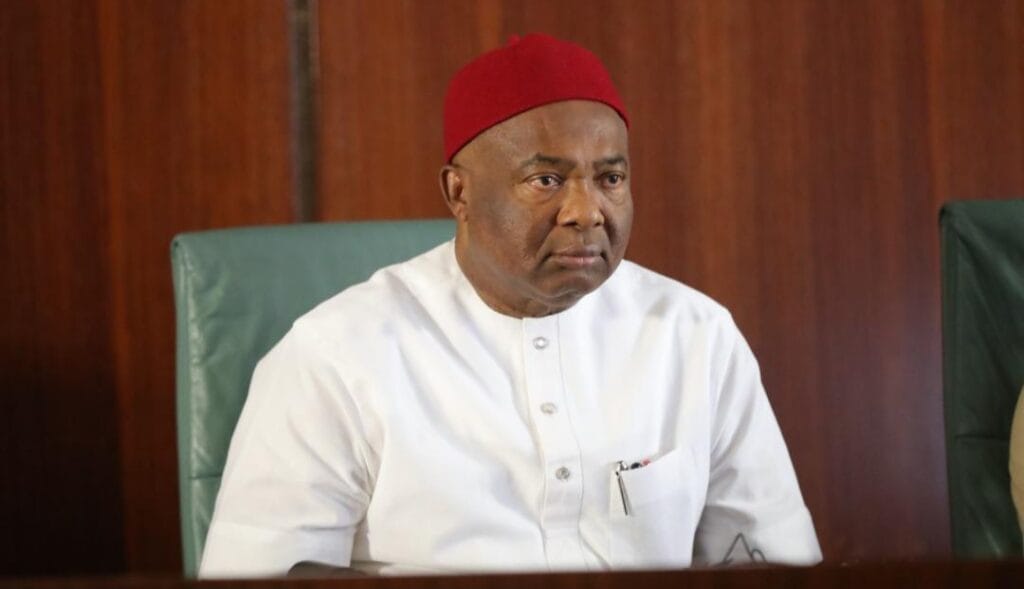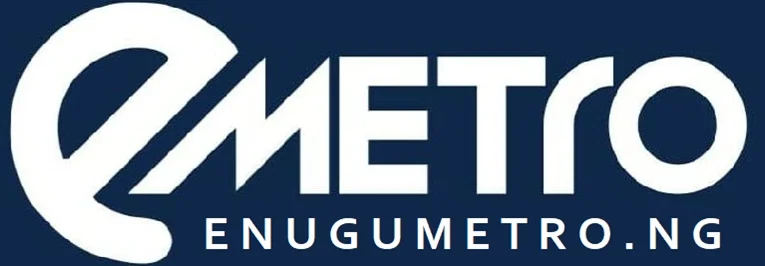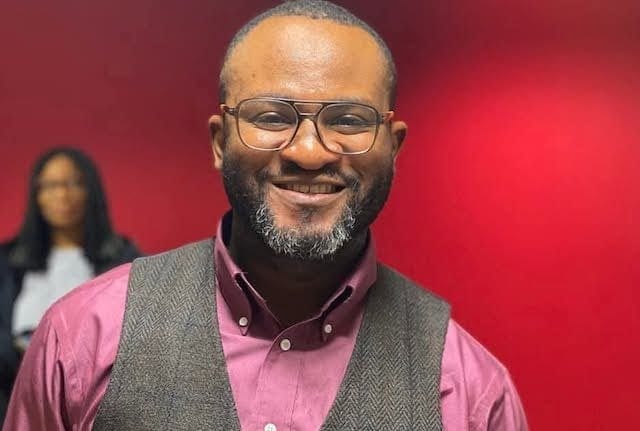Owerri lawyer Chinedu Agu faces charges of cyberstalking and defamation after criticising Gov Uzodimma. Enugu Metro explains the law, politics, and backlash.
The Arrest and Charges
The case of Owerri-based lawyer and activist, Chinedu Agu, has thrown up questions about free speech, the law, and political power in Nigeria. Police arrested Agu, a former secretary of the Nigerian Bar Association (NBA), Owerri branch, on 23 September 2025. Operatives of the Inspector-General of Police’s X-Squad Unit effected his arrest followed a petition by a group known as the Imo Democratic Alliance. The Group accused Agu of publishing inciting and defamatory articles against Governor Hope Uzodimma of Imo State.
On 24 September, Police took Agu to the Magistrate’s Court in Owerri. But proceedings stalled due to the absence of a chief magistrate. The matter resumed the following day with Chief Magistrate Obinna Njemanze presiding. Agu found himself facing a four-count charge of cyberstalking, criminal defamation, incitement, and conduct likely to cause breach of peace.
The prosecutors cited social media posts, including a Facebook entry on 30 August, in which Agu wrote this: “The courts are closed and justice has been kidnapped not by bandits in the bush, but by bandit in government.” He also described the state as “tyranny trapped in sinking bureaucracy.”
Agu pleaded not guilty. But the magistrate ruled that his court lacked jurisdiction to try Agu He therefore ordered Agu remanded at the Owerri Correctional Centre, pending advice from the Director of Public Prosecutions (DPP).
Former Imo Attorney-General Milletus Nlemadim pleaded for Agu’s bail but the magistrate rejected it. However, his legal team, led by Senior Advocate of Nigeria Stanley Imo, filed an emergency application at the Federal High Court, which has now granted Agu bail under “urgent consideration.” As at this morning, today Friday 26 September, the lawyers were still working to perfect his release from custody.
Background: Agu vs Gov Uzodimma
Agu is no stranger to controversy. In recent months, after his return from the NBA Annual Conference in Enugu, his patience with the government snapped. He couldn’t believe what the governor of Enugu accomplished in two years, compared to the xxx years of his state governor. He mounted his popular Facebook page to publish a series of sharply worded essays, including “Tears from Enugu: A Lawyer’s Heartbreaking Diary from a State that Works to a State in Ruins” and “Imo State – Where Justice Is on Vacation During Court Vacation.”
These articles, which drew national attention, were particularly critical of the Uzodimma administration’s handling of the judiciary and governance. Imo’s Commissioner for Information, Declan Emelumba, dismissed Agu’s writings as “satanic verses” and engaged in public exchanges with him.
Agu alleged that the government’s real anger stemmed from his criticism of Uzodimma’s handling of judicial appointments. He had consistently called for the appointment of the most qualified person as acting chief judge of the state.
The Imo Democratic Alliance, the petitioning group, remains a shadowy organisation that inexplicably waded into the Agu vs Gov Uzodimma matter. Agu and his supporters insist that government sponsored a shadowy and unregistered association. Government, it said, is applying pressure through proxies to silence a critic, they said.
End the Sham Trial of Chinedu Agu – Amnesty
Amnesty asks the Imo State Government and Police to end what it calls “the sham trial of activist, Chinedu Agu.” Amnesty International strongly condemns the harassment and sham trial of lawyer and activist, Chinedu…
CRIME & JUSTICE
EFCC charges Enugu-based youth following FBI complaint of crypto theft
Following a complaint by the US Federal Bureau of Investigation (FBI), the EFCC arrested and charged an Enugu-based youth…
Murder of Nsukka Catholic priest sparks outrage in Enugu
Enugu Police investigate the identity and motive of those that masterminded the weekend murder of an Nsukka Catholic priest.…
How politicians use the laws
The charges against Agu rest on two key legal instruments: Nigeria’s criminal defamation provisions and the Cybercrime Act.
Criminal Defamation: Under Sections 373–375 of the Criminal Code and Sections 391–395 of the Penal Code, defamation can attract prison terms or fines. Unlike in many democracies that treat defamation as a civil wrong, Nigeria retains criminal penalties.
Cybercrime Act: Introduced in 2015 to combat online fraud and cyber threats, the powerful and influential in society increasingly deploy the Act against journalists, bloggers, and activists for “cyberstalking” or “inciting content.”
Legal analysts say that politicians often weaponize these provisions to shield themselves from criticism. For example, in November 2024, the police arrested former Imo commissioner Fabian Ihekweme for his frequent criticism of Uzodimma. They only released him in January 2025.
The pattern is familiar: a critic publishes scathing commentary, a politically connected group petitions the police, and the accused faces criminal charges framed around cybercrime or defamation. This shifts political disputes from the arena of free debate to the intimidating halls of criminal courts.
Case Timeline
9 Sept 2025 – Police invite lawyer Chinedu Agu over alleged criminal defamation.
17 Sept 2025 – Agu honours first invitation; released on bail.
23 Sept 2025 – Arrested again after second police invitation; detained in Owerri.
24 Sept 2025 – Attempted arraignment stalls; no magistrate available.
25 Sept 2025 – Formally arraigned, charged, and remanded by Chief Magistrate.
26 Sept 2025 – Federal High Court grants bail; lawyers work to perfect release.
29 Oct 2025 – Next adjourned date after advice from DPP.
Lawyers Push Back
The court battle that defined the case of Chinedu Agu vs Gov Uzodimma has galvanized the legal community in Imo and beyond. On 24 September, lwyers crowded the Owerri Magistrate’s Court premises in solidarity. Among them were Stanley Imo (SAN), Chris Ihentuge, and Eastern Bar Forum chair Damian Nosike.
The Owerri branch of the NBA and rights group Rule of Law and Advocacy Centre condemned the charges, arguing that Agu’s only “offence” was lawful, constructive criticism of governance.
For many lawyers, the concern is not just Agu’s personal liberty, but the erosion of the rule of law when courts become tools for political score-settling. Nosike described the arraignment delays and remand order as part of “a familiar tactic to intimidate dissent.”
Also joining the fray was Amnesty International which in a statement today described the trial as a “sham” and demanded a stop to it.
Public Opinion: Between Law and Politics
Public opinion split along political lines. Supporters of the government argue that free speech has limits, and that Agu crossed the line into incitement, potentially stoking unrest in a volatile state. Police spokesperson DSP Henry Okoye insisted that they arraigned Agu “in accordance with the rule of law and with due respect for fundamental rights.”
But rights advocates, civil society groups, and many Nigerians online see the case as a clear attack on free expression. They point to the arrest of journalist Hassan Mai-Waya Kangiwa in Kebbi earlier in September 2025 for exposing poor hospital conditions, as evidence of a nationwide trend of governments silencing critics instead of addressing issues.
To them, Agu’s punishment is not for breaking the law, but for daring to call out what he saw as abuse of power.
Why It Matters
The Agu case touches on three critical issues in Nigeria today:
- Freedom of Expression vs. Political Power – Can citizens freely criticize their leaders without fear of arrest?
- Weaponization of Law – Should criminal defamation and cybercrime laws continue to be used to protect political office holders?
- The Role of the Courts – Will the judiciary assert its independence or reinforce political control?
As the matter resumes on 29 October 2025, all eyes will be on the courts and the Nigerian Bar Association. For now, Agu remains a test case of how far Nigeria’s democracy tolerates dissent—and whether the law will serve justice or politics.
Key Issues at Stake
Issues at Stake

Freedom of Expression – Should citizens be prosecuted for strong political criticism?
Weaponization of Law – Criminal defamation and cybercrime provisions are increasingly used to silence dissent.
Judicial Independence – Courts face pressure in politically sensitive cases.
Public Interest vs. Political Power – Critics argue leaders punish whistleblowers instead of fixing governance.
Precedent for Democracy – The outcome will influence how far Nigeria tolerates dissent in the digital age.

